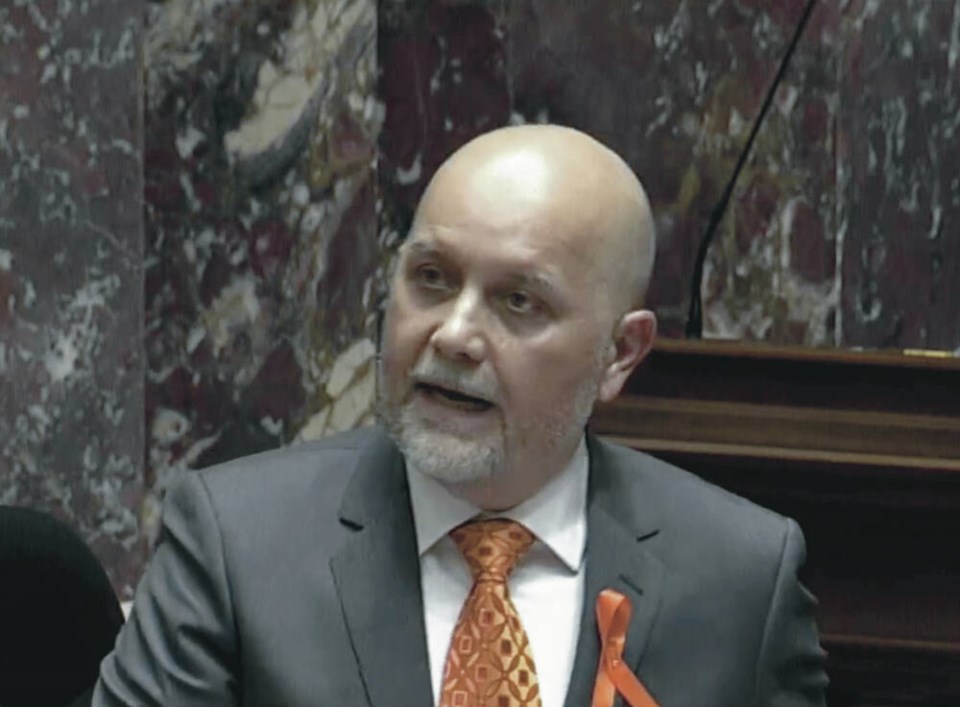Green Party MLA Adam Olsen is speaking out about his past drug use, which included cocaine, in a bid to get the province to move faster in addressing the opioid crisis.
“My twenties were rough — tobacco, coffee, sugar, cannabis, cocaine,” the Saanich North and the Islands MLA told the B.C. legislature this week.
“I had an unhealthy relationship with myself, and I abused these substances.”
Between January and July of this year, more than 1,200 people overdosed as a result of the toxic illicit drug supply, according to the B.C. Coroners Service.
Olsen, who credits his partner Emily with saving him, said this summer he was invited by Leslie McBain of Moms Stop the Harm to speak at an Aug. 31 vigil for Overdose Awareness Day, along with B.C. chief coroner Lisa Lapointe and B.C. representative for children and youth Jennifer Charlesworth.
He said he felt like the “lucky one” as he looked out at the audience of family members of British Columbians who had died of drug overdoses.
Seventy-nine percent of the overdose deaths in 2021 were males, mostly ages 30 to 59, with 85 per cent dying in their homes.
Experts believe while people from a wide variety of socio-economic backgrounds smoke, ingest or inject drugs, many men use them alone because of the shame and stigma associated with illicit opioid use.
Olsen said he feels a duty to “be a positive voice” in breaking down the stigmatization of people who use and abuse illicit substances. “My peers are dying at a shocking rate,” he said, adding the province is not acting quickly enough.
Some have called for decriminalization of personal amounts of drugs, a regulated safe supply of drugs and more recovery options and residential treatment beds.
“Luck should not be the only factor determining whether someone dies or goes on to win four elections, become a community leader, a husband and the father of two incredibly amazing children,” Olsen said.
B.C. Premier John Horgan was asked in a media availability Thursday why an all-party standing committee to address the overdose crisis has not been struck, as requested by the B.C. Greens and Liberals.
“We have been working collaboratively with members of the legislature on a myriad of issues,” Horgan said.
“Collaboration and the listening goes on every day as long as the House is sitting.”
Horgan cited $500 million spent to create the Mental Health and Addictions Ministry, more safe injection sites and repeated overtures to the federal government to start decriminalizing simple possession of opioids, though “we have run into resistance on that front.”
Mental Health Minister Sheila Malcolmson pointed to a promised doubling of treatment beds by 2023.



